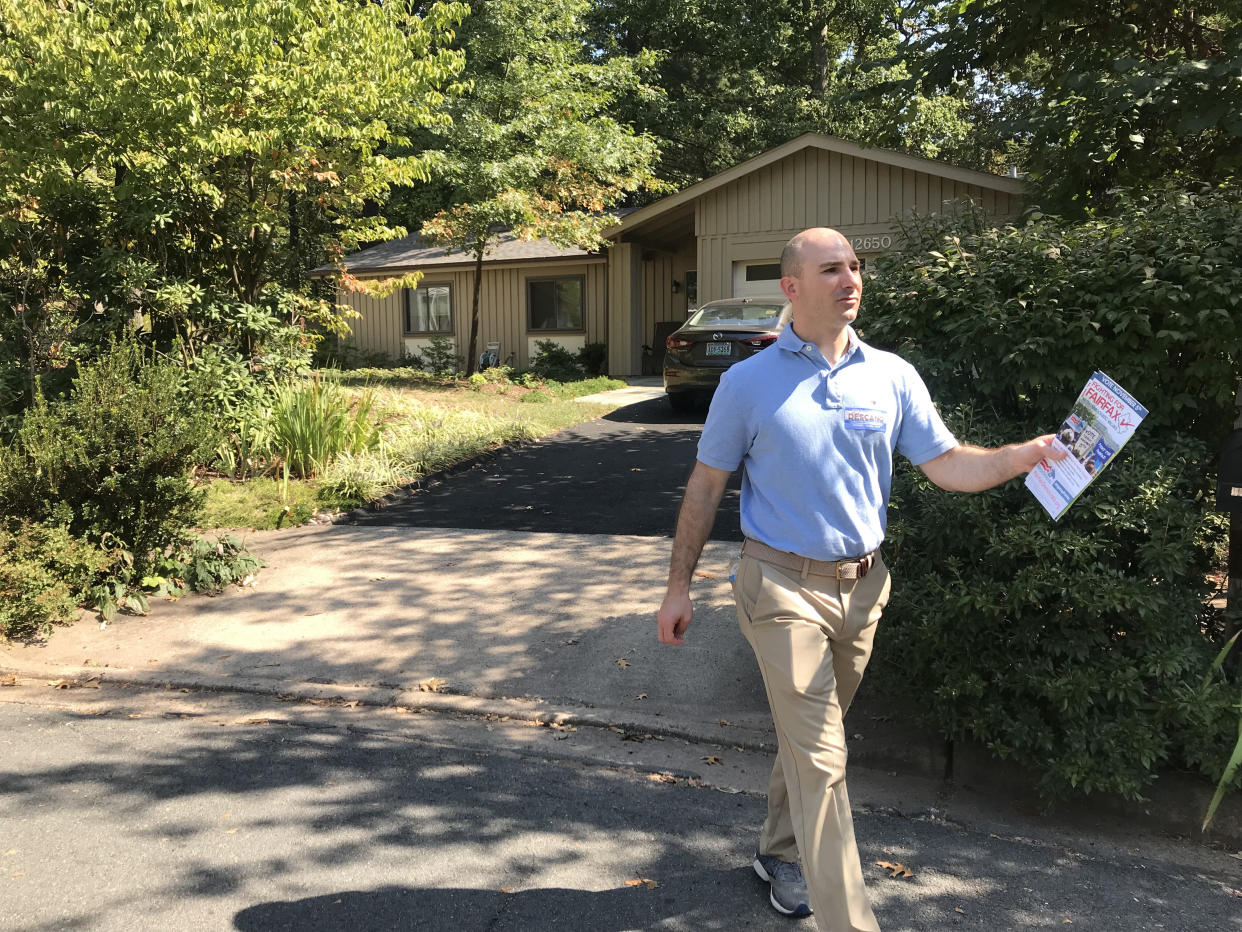Fairfax County, Home Of William Barr, Elects Progressive Prosecutor Steve Descano

Voters in Fairfax County, Virginia, elected a progressive top prosecutor on Tuesday, choosing the candidate who vowed to eliminate the death penalty, end cash bail and stop the prosecutor’s office from cooperating with Immigration and Customs Enforcement.
Steve Descano will be the new commonwealth’s attorney in Fairfax County, the Washington, D.C., suburb where U.S. Attorney General William Barr resides. Barr has spoken out against progressive prosecutors like Descano, calling them “anti-law enforcement DAs” whose election is “demoralizing to law enforcement and dangerous to public safety.”
Descano defeated Jonathan Fahey, a Republican who ran as an independent.
The Descano campaign declared victory on Tuesday evening. With more than three-quarters of precincts reporting, Descano controlled more than 60% of the vote. Local news station WJLA declared him the projected winner.
Descano, in an interview with HuffPost on Tuesday night, said he was glad that Fairfax County voters saw through what he called “fear-mongering” from his opponent.
“This was the first time ever in 50 years that people had a chance to have their say in criminal justice,” Descano said. “They chose a path that was forward-thinking, they chose a path that was based on reform, and they chose their vision for criminal justice.”
In the June Democratic primary, Descano upset the incumbent commonwealth’s attorney, Ray Morrogh, who went on to endorse Fahey in the general election. Descano’s primary campaign got a boost from billionaire George Soros, who through the Justice & Public Safety PAC contributed hundreds of thousands of dollars to the effort.
Both Descano and Fahey are former Justice Department prosecutors, but they offered different visions for criminal justice in Fairfax County, which has a population of more than one million and maintains one of the highest median incomes in the United States.
Descano grew up in South Philadelphia, attended West Point and flew helicopters for the Army. After graduating from Temple University’s law school, he was recruited to the Justice Department through the Attorney General’s Honors Program.
He is the first outsider elected as Fairfax County’s top prosecutor in a half-century. Morrogh, the incumbent, headed the office for 12 years, taking over the position after the retirement of his longtime mentor, who was first elected in 1967.
Outlining his plan before the election, Descano said he’d “discard the tough-on-crime approach that has failed to address the root causes of crime, in favor of a holistic approach that builds up our communities and makes them safe.” He called the election “a choice between submitting to the politics of fear or fighting for justice.”
Descano will likely face some opposition within the ranks of his new office. Some of those prosecutors endorsed Fahey, and some took offense when Descano emailed them after he defeated Morrogh to talk about the “future of the office” and ask them to reach out if they were “interested in continuing to serve the county.”
Other elected progressive prosecutors have faced similar challenges. In St. Louis County, Missouri, prosecutors joined a police union following the election of Wesley Bell, who came to office four years after the death of Michael Brown set off protests in Ferguson.
Descano previously told HuffPost that he believes the great majority of the Fairfax County prosecutors would be able to continue doing their jobs, but acknowledged there could be some departures if current employees didn’t get on board with his vision.
“The people who don’t see it that way ... I don’t think they’ll fit them all in the office,” Descano said. “The criminal justice system should be reflective of the community, and when the community has spoken and says they want certain things, it’s our job as public servants to do that.”
Love HuffPost? Become a founding member of HuffPost Plus today.
This article originally appeared on HuffPost.

